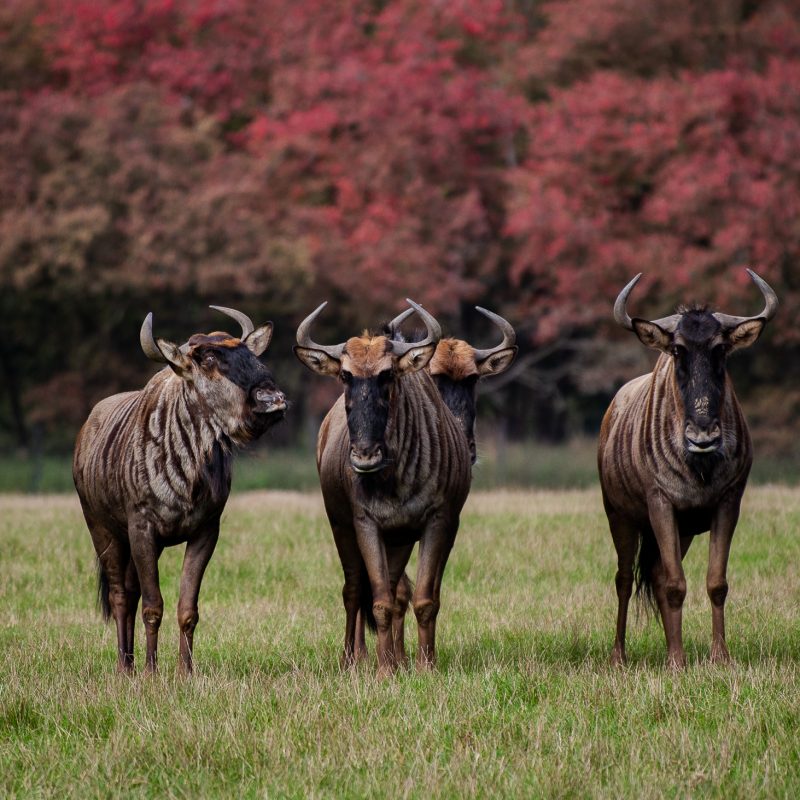Blue Wildesbeests

Habitat
Varied landscape ranging from dense vegetation to open grassy plains in Southeast Africa
Age
Up to 20 years
Weight
118-270 kg
Height
1.28 – 1.40 meters
Gestation
7-9 months
Number of offspring
1 calf
Conservation status
Not threatened
Did you know…
- Wildebeests are vocal and noisy animals. They constantly emit low grunting sounds. When startled or disturbed, they produce a sudden snorting sound that serves as an alarm call.
- In the wild, 80-90% of the cows (females) calve within the same 2-3 week period. This usually occurs just before the rainy season when there will be abundant food for the cows, enabling them to produce ample milk.
- Every year, 2 million wildebeests, along with gazelles and zebras, undertake a migration to follow the grass. This phenomenon is known as the Great Migration and is considered one of nature’s greatest spectacles. It involves crossing two crocodile-infested rivers and covering about 1,600 km filled with predators. In other words, wildebeests are incredibly resilient!
- Knuthenborg’s wildebeest herd currently consists of cows and heifers (young females).
Meet the blue wildebeests on the Savannah.








